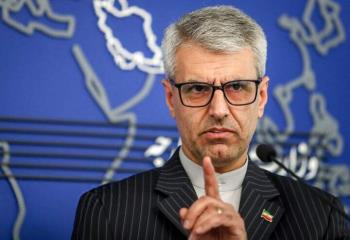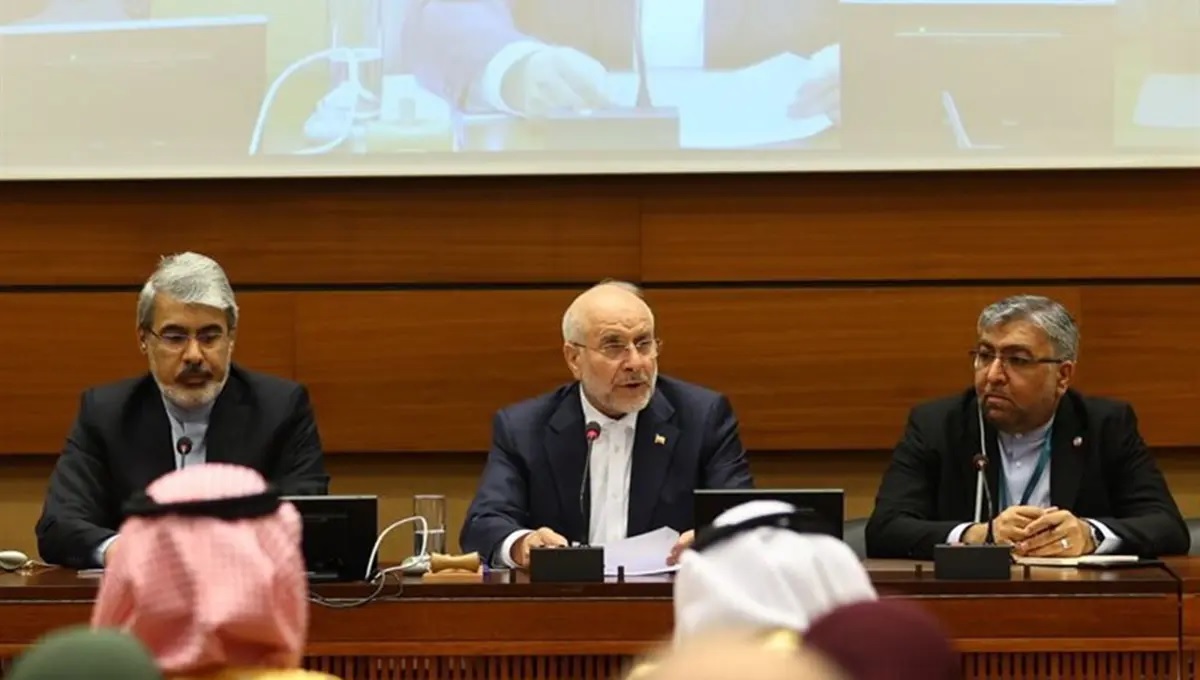Alwaght- Iran has recently managed through a diplomatic initiative to once again become the voice of Gaza people and Palestinian right for liberation. This diplomatic initiative was made during visit to Geneva of the Iranian parliament speaker Mohammad Baqer Qalibaf for the sixth conference of the world parliament speakers. The conference drew considerable diplomatic achievements for Iran, showing that despite the Western sanctions and pressures, Tehran has managed to play an active international role. This is while, as many political experts assert, Israel is facing a diplomatic isolation. This report is a comparative look at the active Iranian diplomacy during the world parliament speakers conference and the Israeli diplomatic isolation.
A look at the history and significance of the conference
The world conference of speakers of Parliament is a meeting that began in 2000 with the invitation of the speakers of parliaments of the countries and during this time the general theme of these meetings has usually focused on peace, democracy and development from the perspective of parliaments. The meeting is part of a series of high-level meetings leading up to the annual UN summit in late September 2015, which emphasized the sustainable development goals.
The conference is organized by the Inter-Parliamentary Union (IPU) and is exclusively for speakers of parliaments, and in fact, this bloc is the largest non-governmental union in the world and is considered one of the largest unions of the UN. The IPU can be compared to the UN in terms of its scope and inclusiveness, with the emphasis on the role of parliaments in the IPU. The mission of the IPU is to promote peace and security through peaceful dialogue, the expansion of democracy, and the emphasis on human rights. This union is a conducive environment for resolving disputes, preventing conflicts, and developing multilateral cooperation among member states.
This parliamentary union also has close ties with the UN, and strengthening the interaction between the IPU and the UN can help increase the utilization of the capacities of these two important international institutions in order to establish global peace and security. The union, which was founded in 1889, has held a conference at the level of the heads of parliaments of member states every five years since 2000.
Given the close relationship between the world conference of speakers of parliaments as a branch of the IPU and the UN, this conference was a good opportunity to defend the rights of the Palestinian people, and the Iranian delegation pursued this goal by drawing global attention to the Gaza disaster. More than 110 countries participated in this important summit.
Iran’s active diplomacy in Geneva
The Iranian parliamentary delegation has obviously made considerable gains in its Geneva visit. Here are some of them:
Revealing Israeli crimes in Gaza: On the second day of his visit to Geneva, Qalibaf delivered a speech at the main session of the event. During his speech, he drew attention to the crimes of the Israeli regime in the region, especially in Gaza and the aggression against Iran. He held up a picture of the two-month-old Iranian baby Rayan Ghasemian, who was martyred by the Israeli regime in the 12-day war, and a child from Gaza under the title “Stand up against 21st century Nazism,” drawing the attention of the attendees to the Israeli atrocities.
Arranging “adherence to international law and the United Nations Charter to ensure international peace and security” by Iran: The meeting, arranged by Iran, addressed the crimes of the Israeli regime and foiled Tel Aviv’s extensive international lobbying against Iran. The meeting was attended by 31 parliamentary delegations, including representatives from the parliaments of Russia, Saudi Arabia, Qatar, Pakistan, China, Oman, Cuba, and 3 international organizations.
Qalibaf’s meetings with over 10 counterparts and heads of international organizations: In all the bilateral meetings of the Iranian parliament speaker, Israeli crimes in Gaza and also 12-day war on Iran were raised as the main topics of discussion.
Israeli delegation isolation
Just contrary to the Iranian active diplomacy, the Israeli delegation was met with coldness and diplomatic isolation.
Diplomatic delegations leave during Israeli parliament speaker’s speech: The speech of Amir Ohana, the Speaker of the Israeli parliament (Knesset), was indeed a controversial one. As he began his speech, parliamentary delegations from Iran, Yemen, Algeria, and Palestine left the hall of the conference in protest to the crimes of the Israeli regime. This protest received a lot of media coverage.
Negative reactions to the Knesset’s inhuman proposal: During his speech, the Speaker of the Israeli parliament, unable to hide his anger at the remarks of the Iranian counterpart, rejected the formation of an independent Palestinian state and claimed that “the Palestinian state could be established in London or Paris.” These remarks were met with a wave of negative reactions in the hall, with audience considering these remarks a clear disrespect for the rights of the Palestinian people and the rules of international diplomacy.
Israelis admit their isolation
Even many Israeli political experts and figures have admitted Israel’s isolation on the world stage.
Ex-Israeli defense minister: Two weeks ago, former Israeli Defense Minister Avigdor Lieberman admitted the isolation of Israel and Benjamin Netanyahu’s cabinet in the world. Emphasizing that Israel must regain its place in the world, Lieberman said that the war in Gaza has “turned us into an outcast in the world.
Diplomatic collapse: The Haaretz newspaper quoted Israeli political analyst Yossi Ferter as saying: “Israel is in the midst of a diplomatic collapse, and this collapse includes internal defeat, global isolation, and the loss of old supporters.”
Losing world support: Israeli journalist Nadav Eyal has also maintained that Israel has effectively defeated itself in the Gaza war due to political defeat, loss of global support, and collapse of moral legitimacy; this is in a situation where no clear vision for ending the war has been presented by Netanyahu’s cabinet and the demands of the international community are being ignored.
Moving to further isolation: Ben Kaspit, an analyst for the Ma’ariv newspaper, wrote in a note: “Netanyahu is seeking an impossible victory and is pushing Israel towards complete isolation. We have become outcasts, our allies have abandoned us, and the world is closing its doors on us, but Netanyahu doesn’t care. While the world seeks to eliminate Israel from the global consensus, he only thinks about eliminating the residents of Gaza.”



























